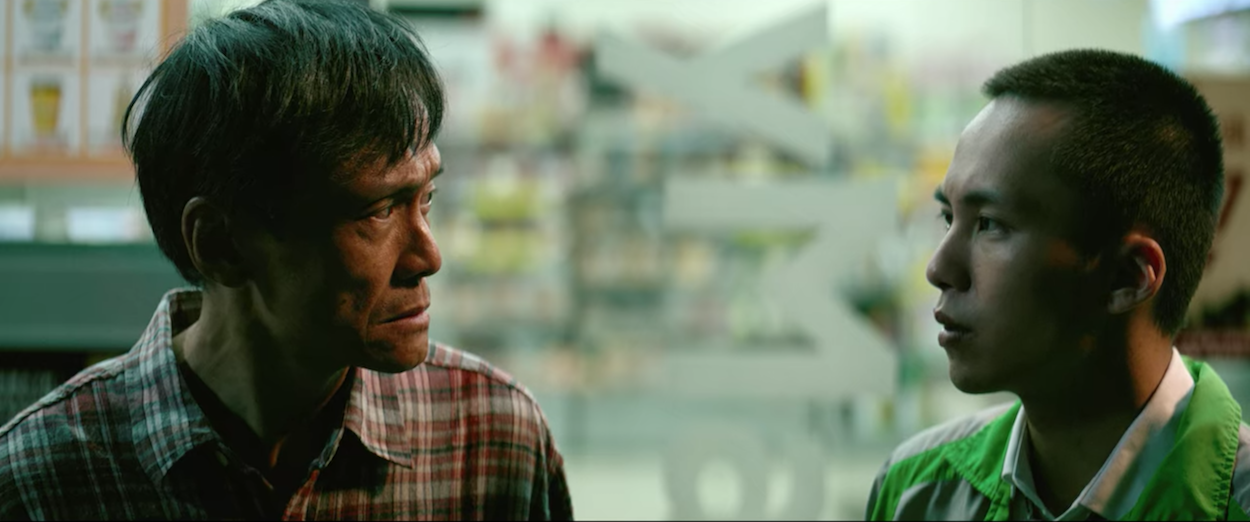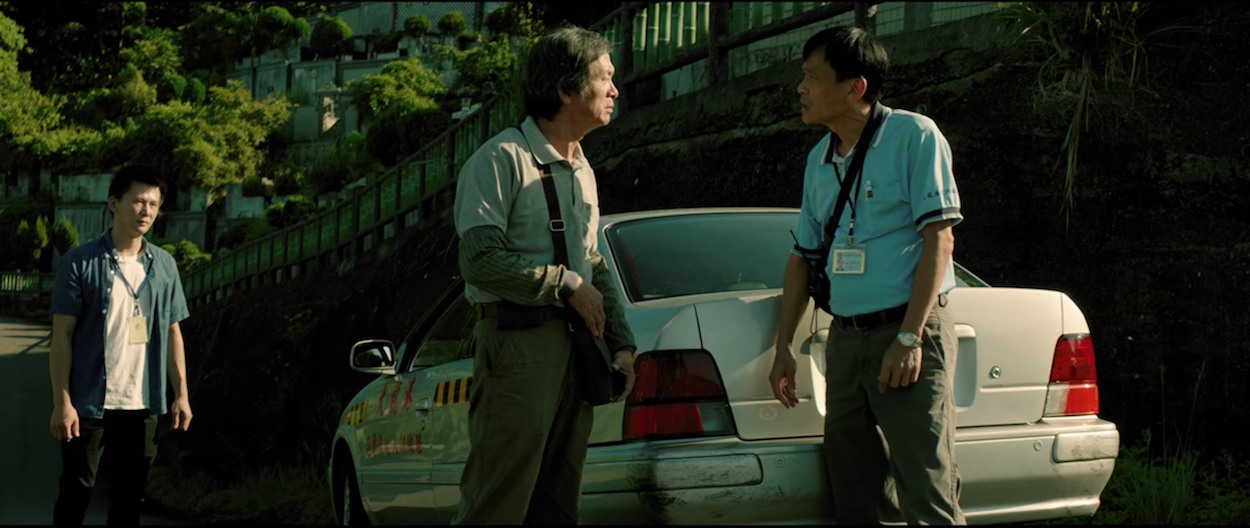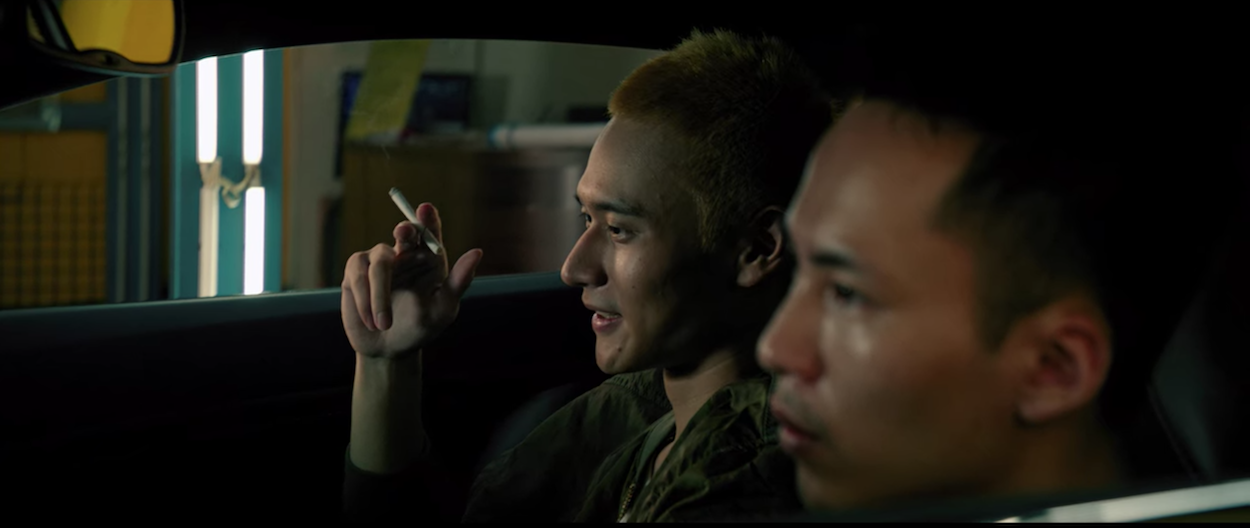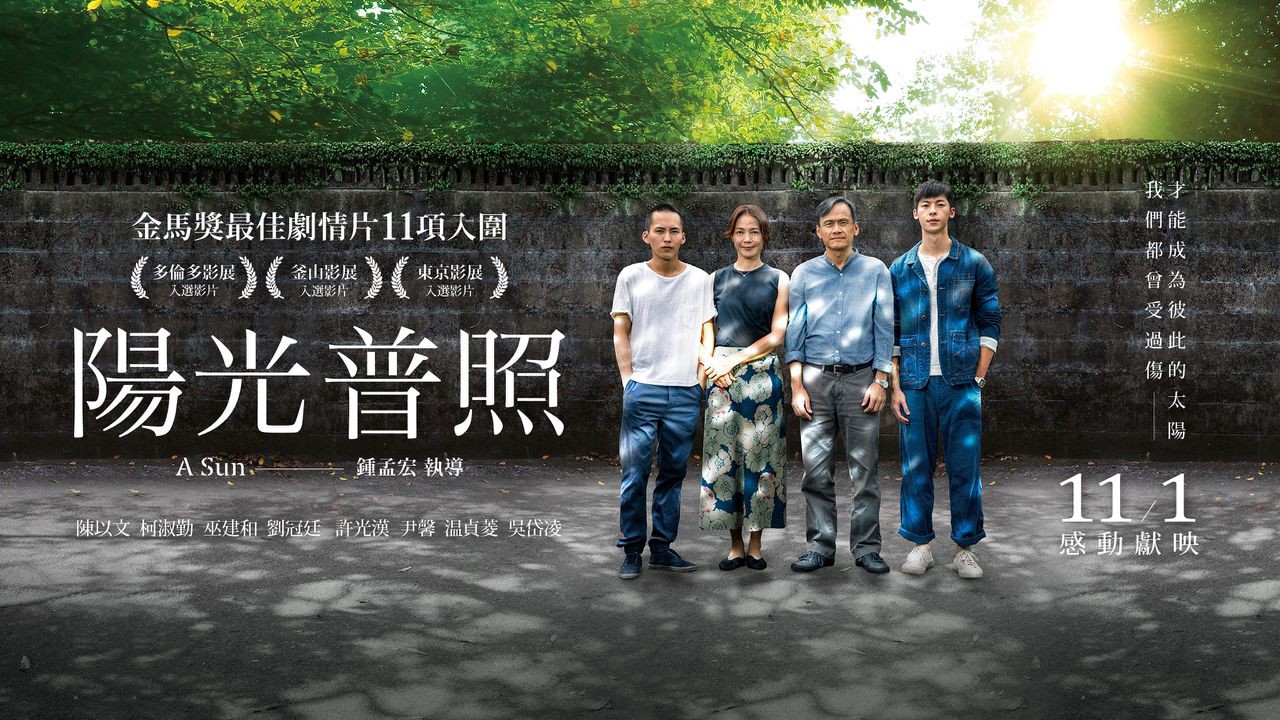by Brian Hioe
語言:
English
Photo Credit: A Sun
DESPITE ITS release last year to much domestic acclaim, winning best film in 2019’s Golden Horse Awards, A Sun has received a new wave of critical attention internationally after making Variety’s list of best films of the year last month. With the film easily accessible on Netflix, A Sun making it to the list is like to encourage future Netflix acquisitions of Taiwanese film, as well as Netflix funding of Taiwanese productions—particularly with the film industry of many nations around the world unable to operate due to COVID-19, but Taiwan’s domestic film industry being relatively unaffected due to the country’s successes fighting off COVID-19.

Film still. Photo credit: A Sun
The themes that preoccupy in A Sun recur through much contemporary Taiwanese film and television. In particular, in the wake of incidents such as the Cheng Chieh subway attack in 2014 that left four dead, much contemporary Taiwanese film and television has focused on the effects of violent crimes committed by young people. One observes such topical focus in films such as 2017 television series, Days We Stared at the Sun, which shares several of its lead actors with A Sun, hit 2019 drama The World Between Us, and 2020 film The Painting of Evil.
So, too, with A Sun, which focuses on the fallout on the Chen family after their second son, the troubled high school student A-Ho, is arrested after a violent attack on a fellow student committed with a friend, Radish, that leaves the victim missing his hand. It is subsequently found that A-Ho’s girlfriend, Xiao-yu, has become pregnant with his child, while the Chen family patriarch, A-wen, fends off the demand of the victim’s father for monetary reparation—though this is played primarily for laughs.
In the aftermath of the turmoil, A-Ho’s older brother, the star student A-Hao, commits suicide, feeling the pressure of the family’s expectations on him. A-Ho subsequently struggles to rehabilitate himself to society after being released from jail and marrying Xiao-yu to raise their child. But several years later, A-Ho is confronted by Radish, now released from jail, who feels that A-Ho owes him for leaving him to rot in jail.

Film still. Photo credit: A Sun
Though a highly competent work, much of A Sun’s plot skews toward melodrama. However, A Sun is well-composed in terms of plot and pacing, never coming across as overbearing or too intent on trying to impart some message to viewers.
Themes of socioeconomic inequality as touched on in the film. A-wen, the Chen family father, works as a driving instructor, who has set his motto as being “Seize the Day, Decide Your Path”—suggesting that one can rise above circumstances with enough willpower—but has clearly not done so himself. After his release from jail, A-Ho works in a car wash and a convenience store, among other jobs, while Radish seems to have been pushed toward a life of gangster crime by poverty. However, this does not translate into broader socioeconomic commentary in the manner of other recent Taiwanese films that have honed in on the issue, such as The Great Buddha + or The Bold, The Beautiful, and the Corrupt.
The film is primarily carried by the skill of its actors. Wu Chen-ho’s A-Ho and Liu Kuan-ting’s Radish are a well-matched duo, much as they were playing the two main characters in Days We Stared at the Sun. However, Radish fails to achieve depth beyond a representation of radical evil born from socioeconomic inequality, and his appearance in the film as the bad influence who comes back to trouble A-Ho after he has “gone straight” is too derivative a plot element.

Film still. Photo credit: A Sun
It is a daring directorial moving killing off Greg Hsu’s role of A-Hao approximately one-third through the film, in order to have the rest of the character deal with his passing, and to shift the focus back onto A-Ho. But the results leave one wanting that A-Hao could have seen more development as a character.
On the other hand, Chen Yi-wen, who plays A-Wen, the Chen family father, is given a chance to truly demonstrate his talents in the film, resulting in a well-deserved Best Leading Actor award win at the Golden Horses. This is to be contrasted as to when Chen was cast as a more two-dimensional, even stereotypically villainous character in other recent Taiwanese films, as in The Great Buddha + and Classmate Minus. Chen shines in evoking both a comedic and serious demeanor in those roles as well, but having Chen play a sympathetic, working-class father proves a far more effective use of his talents than when Chen is typecast as playing corrupt politicians.
Either way, in spite of some of its flaws, A Sun still proves a stronger showing among the Taiwanese domestic films of the past few years. It is a film very much worth watching, as a reflection of the topical concerns that undergird much of contemporary Taiwanese society.



